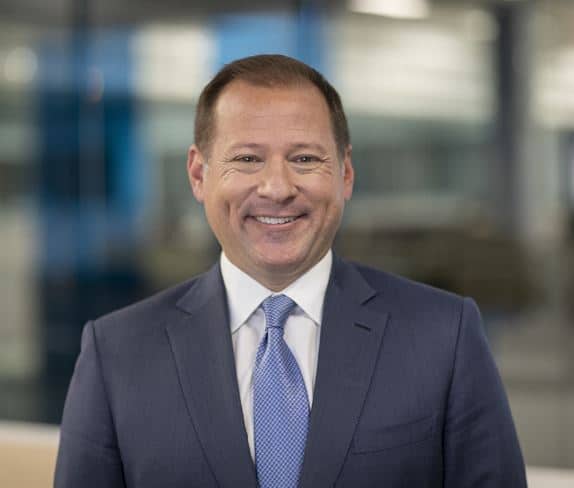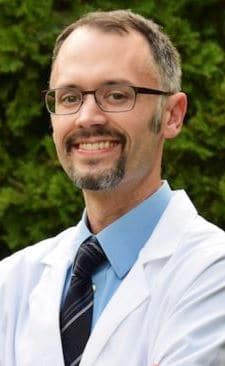Last December, we introduced readers to a new series at Hearing Health & Technology Matters: Hearing Healthcare 2020. The intent of the series was to “explore the forces behind the changes and disruptions impacting the hearing industry in more detail, to better understand how they will shape the future of hearing healthcare.”
Little did we know last December, but 2020 was unlike anything we could have ever expected.
Therefore, as 2020 comes to a close, we thought it would be fitting to reconnect with our first guest in the series, Brandon Sawalich, President and CEO of Starkey Hearing Technologies and Chairman of the Hearing Industries Association (HIA), to reflect on events over the past year and what we should anticipate as the industry looks towards 2021 and beyond.
KL: Clearly a lot has taken place over the past year since we last talked about disruptions impacting the hearing industry. The pandemic has taken, and continues to take, a significant toll on our physical, economic and mental health. What lessons do you think the industry has learned as a result of the pandemic?
Sawalich: Hearing Healthcare is essential. We’ve learned that hearing healthcare providers have the ability to be agile and more resilient than perhaps even they thought possible.
We’ve also learned that, as an industry, we are truly all in this together. At the beginning of the pandemic, when information seemed to be changing by the minute, we succeeded by collaborating with our partners and sharing knowledge and key learnings as quickly as we could. They did the same for us, sharing on-the-ground perspectives and challenges in real time, so we could quickly identify solutions to help get businesses back up and running.
This spirit of collaboration has always been a priority at Starkey, and I believe the foundation of trust we’ve built with our partners and staff will enable us all to emerge from this year stronger than ever.
KL: There seems to be broad agreement that long-term changes in consumer behavior will occur as a result of the pandemic. How do you see this impacting the hearing industry and what should professionals and businesses do to prepare?
Sawalich: Technological advances, like telehealth capabilities, are helping hearing healthcare providers adapt to a growing demand for services like remote programming.
When we expanded our telehealth remote programming to all technology tiers of Starkey Livio hearing aids, it was out of necessity for providers to reduce face-to-face visits with patients, but still provide them with important counseling and adjustments.
This has created efficiencies for providers and offered benefits that are still being uncovered. It has also confirmed what we’ve known at Starkey for many years: that hearing healthcare providers must routinely invest time in learning the latest technologies, so they can stay ahead of the competition and be prepared for unforeseen challenges, like a pandemic.
However, with all that being said, we know the patient is in charge and ultimately still wants to experience interaction face-to-face when and where it can safely happen.
KL: Back in 2019, we were all expecting the OTC hearing aid regulations to have been released prior to the August 2020 deadline. As we know, that didn’t happen. Has your view or approach to OTC hearing aids changed since our discussion last year?
Sawalich: No, it has not. OTC was a term spotlighted by the congressional bill, but OTC and low-cost options have been around for decades.
My view has always been, and continues to be, that the hearing healthcare professional plays the most important role in someone’s hearing journey. By removing providers from the equation, I believe OTC hearing aids may confuse the consumer who is looking for better hearing.
Patient satisfaction, which is at an all-time high, could plummet. I embrace disruption and innovation from the market and new companies, but not at the cost of someone’s hearing healthcare. Regardless of whether or not OTC hearing aids become a reality, there will always be a need for the hearing healthcare professional.
As many professionals are keenly aware, when it comes to treating hearing loss, most patients aren’t willing to settle for second best. They want the ability to hear well. Period.
KL: Despite the unprecedented challenges we faced in 2020, as we finish up the year it seems like there is room for optimism moving forward. What sort of trends or data are you seeing that make you feel positive about the hearing industry in 2021?
Sawalich: 2020 showed the world, beyond a shadow of a doubt, that hearing healthcare is essential.
Never has there been a moment in the history of this industry when being connected to people and information was more important than during a global health pandemic. People with hearing loss and their loved ones faced a number of challenges, including face masks that have inhibited communication and social distancing that has forced them to communicate over Zoom calls.
Our industry is well aware that far too many people delay seeking treatment for their hearing loss. 2020 was a wake-up-call for many of them, spurring them to address it and get help. I am optimistic that, by the end of 2021, hearing healthcare professionals will help more people than ever before live better lives through better hearing.
Our greatest decade is ahead in the hearing industry. With new advancements in hearing technology and the dedicated service of hearing providers, we will only increase patient satisfaction. The hearing healthcare professional will be more important than ever.
 Brandon Sawalich is President and CEO of Starkey. Brandon leads a global team of more than 5,000 employees, with 28 facilities worldwide. He drives the strategic direction of Starkey Hearing Technologies and works closely with the Executive Team and other leaders throughout the organization to support the company’s values and goals. As President, he is focused on forward-thinking leadership and is committed to continuing to innovate the science, design and production of hearing aid technologies, while providing consumers the best quality products at affordable prices. Under Brandon’s leadership, Starkey Hearing Technologies has incorporated integrated sensors, artificial intelligence and Healthable technology into the company’s hearing health products, and he continues to seek out opportunities to bring cutting-edge products and solutions to market.
Brandon Sawalich is President and CEO of Starkey. Brandon leads a global team of more than 5,000 employees, with 28 facilities worldwide. He drives the strategic direction of Starkey Hearing Technologies and works closely with the Executive Team and other leaders throughout the organization to support the company’s values and goals. As President, he is focused on forward-thinking leadership and is committed to continuing to innovate the science, design and production of hearing aid technologies, while providing consumers the best quality products at affordable prices. Under Brandon’s leadership, Starkey Hearing Technologies has incorporated integrated sensors, artificial intelligence and Healthable technology into the company’s hearing health products, and he continues to seek out opportunities to bring cutting-edge products and solutions to market.
 Kevin Liebe, AuD, is President and CEO of Hearing Health & Technology Matters (HHTM). He also serves as a Scientific Advisor to Neosensory, a Silicon Valley based startup pioneering experiences in sensory augmentation. As an audiologist, Kevin has experience in variety of settings, including private practice, ENT, and industry. He is a past president and board member of the Washington State Academy of Audiology
Kevin Liebe, AuD, is President and CEO of Hearing Health & Technology Matters (HHTM). He also serves as a Scientific Advisor to Neosensory, a Silicon Valley based startup pioneering experiences in sensory augmentation. As an audiologist, Kevin has experience in variety of settings, including private practice, ENT, and industry. He is a past president and board member of the Washington State Academy of Audiology







